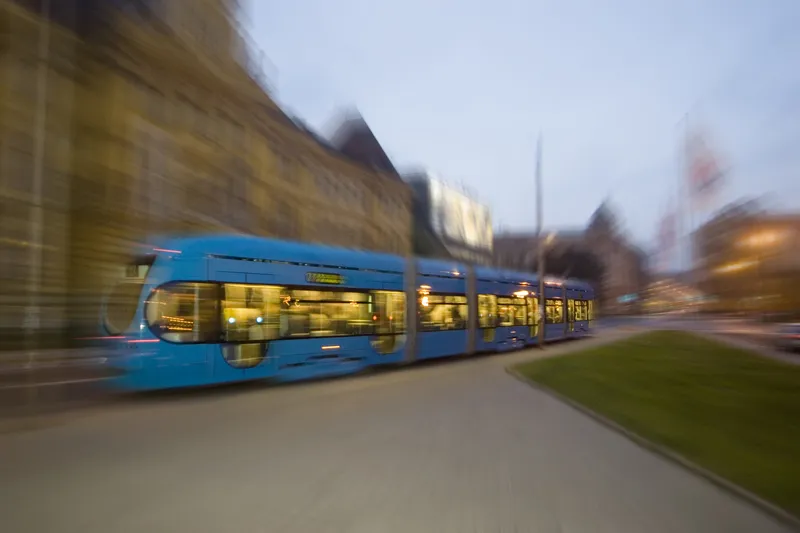A dynamic shift from vehicle ownership to user-ship has set the stage for double-digit, year-on-year growth in the European private vehicle leasing market, according to Frost and Sullivan researchers. Growth is augmented by customer demand for hassle-free, flexible mobility solutions. Original equipment manufacturers (OEM), leasing companies, brokers, and financial firms must focus on sustainable solutions that offer customer value while driving profits and market penetration.
“Product innovation and ad
March 3, 2017
Read time: 2 mins
A dynamic shift from vehicle ownership to user-ship has set the stage for double-digit, year-on-year growth in the European private vehicle leasing market, according to Frost and Sullivan researchers. Growth is augmented by customer demand for hassle-free, flexible mobility solutions. Original equipment manufacturers (OEM), leasing companies, brokers, and financial firms must focus on sustainable solutions that offer customer value while driving profits and market penetration.
“Product innovation and advancement in technology, like telematics and usage based tariffs, will provide leveraging opportunities for providers and create new business opportunities for growth,” said2097 Frost & Sullivan Mobility Research Analyst Abishek Narayanan.
The report Europe Private Vehicle Leasing Market Strategic Analysis, provides insight into the private vehicle leasing market for light commercial vehicles in Europe. The research focuses on the competitive landscape, lender profiles, and distribution trends.
Strong competition is expected as smaller participants enter the market making it fragmented followed by consolidation through mergers and acquisition i.e. inorganic growth of big leasing companies in their pursuit to expand their portfolio to include private lease product line.
From a regional perspective, high growth rates are expected across Benelux, the Nordics, and France. While Germany secured the most new contracts in 2015, Spain has seen a rise in car prices, which has forced customers to look for alternative modes of vehicle possession. Switzerland is controlled by retail sales and has a high penetration of private leasing contracts.
Other growth opportunities and trends include private leasing contracts, while indirect distribution channels offer higher flexibility in selecting their collaboration partners and can offer lease contracts at competitive prices. Expected softening of used car prices coupled with an increase in demand for re-marketing will give rise to new market opportunities. OEMs dominate the private lease offering.
“Demand from retail customers such as Gen Y, retirees, professionals and entrepreneurs in terms of cost-effective, affordable and comfortable mobility options is on the rise,” notes Narayanan. “Future solutions, for instance car sharing, peer-to-peer lending and fractional leasing, will be influenced by awareness of product and usage preferences.”
“Product innovation and advancement in technology, like telematics and usage based tariffs, will provide leveraging opportunities for providers and create new business opportunities for growth,” said
The report Europe Private Vehicle Leasing Market Strategic Analysis, provides insight into the private vehicle leasing market for light commercial vehicles in Europe. The research focuses on the competitive landscape, lender profiles, and distribution trends.
Strong competition is expected as smaller participants enter the market making it fragmented followed by consolidation through mergers and acquisition i.e. inorganic growth of big leasing companies in their pursuit to expand their portfolio to include private lease product line.
From a regional perspective, high growth rates are expected across Benelux, the Nordics, and France. While Germany secured the most new contracts in 2015, Spain has seen a rise in car prices, which has forced customers to look for alternative modes of vehicle possession. Switzerland is controlled by retail sales and has a high penetration of private leasing contracts.
Other growth opportunities and trends include private leasing contracts, while indirect distribution channels offer higher flexibility in selecting their collaboration partners and can offer lease contracts at competitive prices. Expected softening of used car prices coupled with an increase in demand for re-marketing will give rise to new market opportunities. OEMs dominate the private lease offering.
“Demand from retail customers such as Gen Y, retirees, professionals and entrepreneurs in terms of cost-effective, affordable and comfortable mobility options is on the rise,” notes Narayanan. “Future solutions, for instance car sharing, peer-to-peer lending and fractional leasing, will be influenced by awareness of product and usage preferences.”








